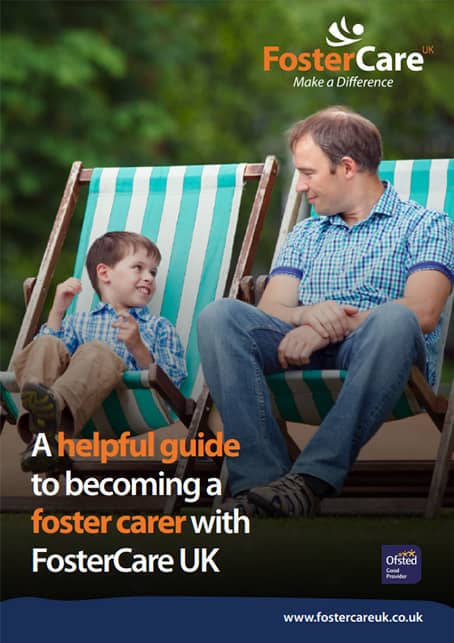


What happens when a child is taken into care?
Benefits of being a foster parent
What is a care leaver?
How to become a foster parent
How to foster a child
What are the foster care requirements
Can I choose who I foster?
Fostering with pets FAQ
How long does it take to become a foster parent?
What is the role of an independent fostering agency?
Fostering a disabled child
Tips for coping when foster placements end
Do foster carers pay tax?
What to expect in a fostering assessment
Common Fostering Challenges and Solutions
What disqualifies you from being a foster carer?
Muslim Fostering
Fostering as a single parent
Can you foster a child with a criminal record?
Can you work and foster?
Top 10 fostering myths
Can I foster if…?
Can I foster and rent?
LGBT Fostering: can I foster if I’m gay
Top transferable skills to become a foster carer
Can you foster with a mental health condition?
Christian Fostering
Sikh Fostering
Cultural Diversity in Foster Care
How to encourage foster children to read
Reasons for a child to be taken into care
Tips for coping with attachment disorders in Foster Children
Fostering vs Adoption
What happens when foster parents get divorced?
What is reunification in foster care?
How to deal with foster child bullying
A guide to the foster care handbook
Guide to fostering young children
Types of self-harm
A guide to fostering teenagers
What are the signs of depression in foster children?
Just the same as physical health, when you apply to become a foster carer, your mental and long-term health will be considered as part of the assessment process. If you have a mental health condition it’s still possible for you to become a foster parent, as long as it doesn’t affect your ability to take care of a child.
As part of the fostering application process, you’ll need to have a medical assessment with your GP and answer a series of questions about your mental health, this is to verify that you’ll be able to carry out the role of a foster parent and check that becoming one won’t affect your own mental wellbeing. Here at FosterCare UK, we treat each case individually. And, if after assessment we’re satisfied that your mental health won't impact your own or the child’s care then you’ll still be able to foster.
If you’re on medication for a mental health condition, such as antidepressants, it won’t automatically disqualify you from becoming a foster carer. Your medication will be discussed during the fostering assessment as part of your medical report, and it’s likely that as long as you continue to take your medication or discuss with your doctor any proposed changes to your medication it won’t affect your application. However, it’s worth noting that the assessment process works on a case-by-case basis.
A mental health study conducted by Mind found that one in four people will experience a mental health problem of some kind every year in England, and we understand that it’s not something you can necessarily predict. If you encounter a mental health issue that could be harmful to you or your foster child, it is likely that the child would need to be removed from your care until the next steps can be taken. If you’re faced with mental health challenges, we will work together with you, your social workers, and your doctor to develop a treatment plan with you and your foster child’s wellbeing as a priority.
If you experience a change in circumstance that could affect your mental health such as a death in the family or a divorce, your eligibility to be a foster carer will need to be reassessed.
Providing your mental health does not affect your ability to care for the child or young person, you may find you benefit from an extra level of empathy through your own experiences. Everyone’s experiences with mental health are different, so if you do find caring for a child who is facing mental health challenges triggering, it may not be the right choice for you.
Each case is treated individually so we can ensure the best approach for both foster parent and child.
Here at FosterCare UK, we approach fostering with a therapeutic approach at the forefront. By training you to become part of the foster child’s support network, we can help you to understand the needs of the child from a mental health perspective. We also offer complete training and support for foster parents to make sure you are completely prepared to care for your foster child or young person. If you would like to find out more, please do not hesitate to contact our helpful team today.
If you’ve got any questions or would like to find out more about fostering with Capstone, fill out the form below.
An experienced fostering advisor from your local area will then be in touch.

Start the conversation today. Our team of friendly advisors are on hand to answer any foster care questions you may have. We can offer you honest and practical advice that can help you decide if becoming a foster carer is the right path for you.


